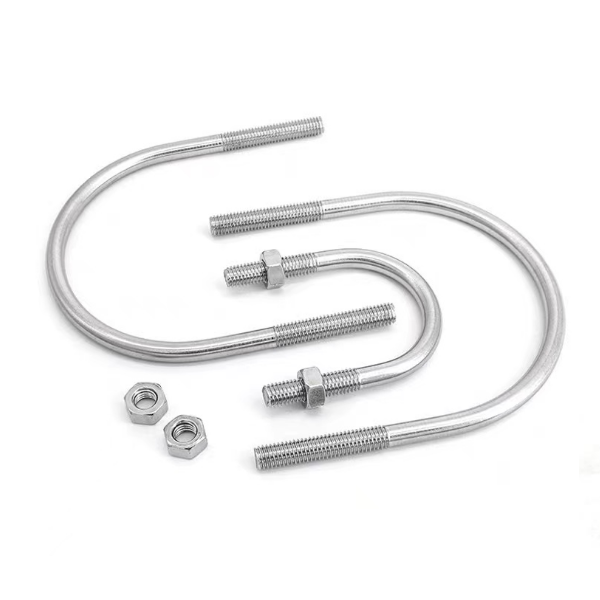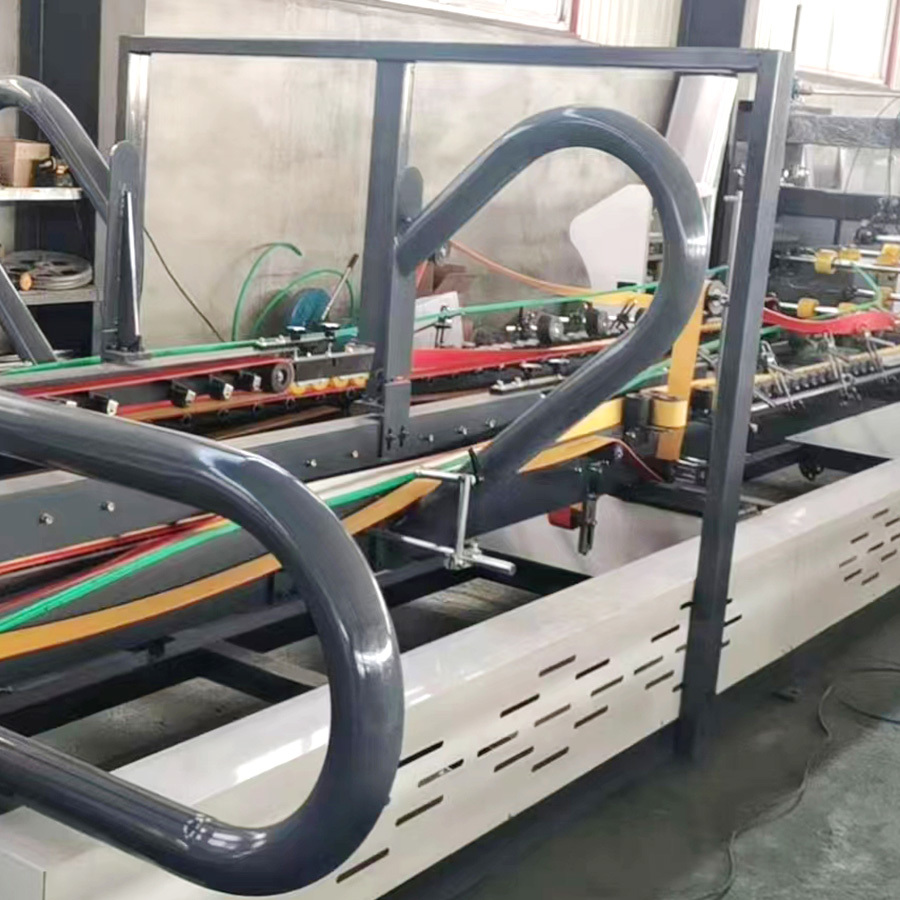 Esperanto
Esperanto
 Shqiptare
Shqiptare
 Euskara
Euskara
 Zulu
Zulu
 Latinus
Latinus
 Cymraeg
Cymraeg
 தமிழ்
தமிழ்
 Slovak
Slovak
 Slovak
Slovak
 Afrikaans
Afrikaans
Unlocking the Strength: Why Hex Bolts Are Essential in Industrial Applications
2025-05-04
Unlocking the Strength: Why Hex Bolts Are Essential in Industrial Applications
In the world of industrial applications, the importance of choosing the right fasteners cannot be overstated. Among various types of fasteners, **hex bolts** stand out for their reliability and versatility. This article delves into the essential role that hex bolts play in industrial applications, exploring everything from their construction materials to their numerous advantages across diverse sectors. By the end of this comprehensive guide, you will have a thorough understanding of hex bolts and their indispensable nature in industrial settings.
Table of Contents
- What Are Hex Bolts?
- Construction and Materials of Hex Bolts
- Advantages of Using Hex Bolts in Industrial Applications
- Applications of Hex Bolts in Various Industries
- Tightening Techniques and Best Practices for Hex Bolts
- Choosing the Right Hex Bolt for Your Application
- Safety and Maintenance Considerations for Hex Bolts
- The Future of Hex Bolts in Industrial Applications
- FAQs About Hex Bolts
What Are Hex Bolts?
Hex bolts are a type of fastener characterized by their hexagonal heads and threaded shafts. Commonly used in various construction and engineering applications, these bolts are designed to be fastened with a wrench, allowing for a secure grip and effective load distribution. The unique shape of their heads provides a greater surface area for tool engagement, making it easier to tighten and loosen them without slipping.
Hex bolts are available in various sizes, lengths, and materials, making them adaptable to a wide range of applications. Their robust construction is particularly suited for heavy-duty tasks, providing durability and strength in demanding environments.
Construction and Materials of Hex Bolts
Hex bolts are commonly made from a variety of materials, each chosen for its specific properties and suitability for various environments. The most common materials include:
1. Carbon Steel
Carbon steel hex bolts are renowned for their high tensile strength and are often coated for corrosion resistance. They are ideal for general-purpose applications but may not perform well in highly corrosive environments.
2. Stainless Steel
Stainless steel hex bolts offer superior resistance to corrosion and are perfect for marine and chemical environments. Their aesthetic appeal also makes them suitable for applications where appearance matters.
3. Alloy Steel
Alloy steel hex bolts are specifically designed for high-stress applications. They are often heat-treated to improve their strength and are used in heavy-duty machinery and structural applications.
4. Brass and Bronze
Brass and bronze hex bolts are less common but are utilized in specific applications, particularly those requiring low magnetic permeability or resistance to corrosion.
Choosing the right material is essential for ensuring the longevity and effectiveness of the bolt in its intended application. Additionally, the finish of the hex bolt—such as zinc plating, hot-dip galvanizing, or plain finish—can significantly impact its performance in various environmental conditions.
Advantages of Using Hex Bolts in Industrial Applications
Understanding the advantages of hex bolts can help industries optimize their operations and ensure structural integrity. Some of the key benefits of using hex bolts include:
1. High Strength and Durability
Hex bolts are engineered to withstand heavy loads and resist deformation, making them suitable for demanding applications. Their robust construction ensures long-term durability, reducing the need for frequent replacements.
2. Versatility
With various sizes, materials, and finishes available, hex bolts can be employed in diverse applications across multiple industries, from construction to manufacturing.
3. Ease of Installation
Hex bolts can be easily tightened and loosened with standard tools, such as wrenches, making installation and maintenance straightforward and efficient.
4. Cost-Effectiveness
Given their durability and the reduced maintenance they require, hex bolts can be a cost-effective solution for many industrial applications, leading to lower overall project costs.
5. Load Distribution
The design of hex bolts allows for effective load distribution, reducing the risk of structural failure and ensuring the integrity of the assembly.
Applications of Hex Bolts in Various Industries
Hex bolts are utilized in a variety of industries, highlighting their versatility and importance. Some of the key applications include:
1. Construction Industry
In the construction industry, hex bolts are essential for connecting structural elements, such as beams and columns. They are commonly used in steel frame construction, where strong, reliable connections are crucial for safety and stability.
2. Automotive Industry
Hex bolts play a critical role in automotive applications, securing various components such as engine parts, chassis, and suspension systems, ensuring the overall safety and performance of vehicles.
3. Machinery and Equipment
Industrial machinery relies heavily on hex bolts for assembly and maintenance. Their strength ensures that critical components remain securely fastened during operation, minimizing the risk of equipment failure.
4. Aerospace Industry
In the aerospace sector, hex bolts are used in aircraft assembly and maintenance. Their ability to withstand high stress and extreme conditions makes them ideal for this demanding environment.
5. Marine Applications
Hex bolts are essential in marine applications, where corrosion resistance is paramount. They are used in shipbuilding, offshore structures, and various marine equipment.
Tightening Techniques and Best Practices for Hex Bolts
To ensure the best performance and longevity of hex bolts, proper tightening techniques and best practices should be employed:
1. Torque Specifications
Adhering to the manufacturer’s torque specifications is crucial. Over-tightening can lead to bolt failure, while under-tightening may result in loosening.
2. Use of Lubricants
Applying the appropriate lubricant can reduce friction and allow for more accurate torque application. Always follow manufacturer recommendations regarding lubrication.
3. Use of Washers
In many applications, using washers under hex bolts can help distribute the load more evenly and prevent damage to the surface material.
4. Regular Inspections
Regular inspections can help identify any potential issues before they become critical. Look for signs of wear, corrosion, or loosening.
Choosing the Right Hex Bolt for Your Application
Selecting the right hex bolt involves considering several factors:
1. Material Requirements
Assess the environmental conditions and choose a material that will withstand those conditions, whether it's carbon steel for general use or stainless steel for corrosive environments.
2. Load and Stress Factors
Determine the load requirements of your application and select a hex bolt that can handle the stress without failure.
3. Size and Length
Ensure that the hex bolt size and length are appropriate for your application. A bolt that is too short may not provide adequate strength, while one that is too long can create problems during installation.
Safety and Maintenance Considerations for Hex Bolts
Ensuring safety and proper maintenance is essential when working with hex bolts. Consider the following:
1. Proper Training
Ensure that personnel are properly trained in the use of tools and the correct procedures for installing and maintaining hex bolts.
2. Use of Personal Protective Equipment (PPE)
Always wear appropriate personal protective equipment, such as gloves and safety glasses, when handling hex bolts and tools.
3. Documentation
Keep detailed records of hex bolt usage, maintenance, and inspections to identify patterns or issues that may require attention.
The Future of Hex Bolts in Industrial Applications
The future of hex bolts in industrial applications looks promising, with advancements in materials technology and manufacturing processes. Innovations such as high-strength alloys and coatings that enhance corrosion resistance will likely expand the capabilities and applications of hex bolts. Furthermore, as industries continue to prioritize sustainability, the development of eco-friendly materials and manufacturing methods will play a significant role in the evolution of hex bolts.
FAQs About Hex Bolts
1. What is the main difference between hex bolts and other fasteners?
Hex bolts have a hexagonal head and are designed for heavy-duty applications, providing superior strength and load distribution compared to other fasteners like screws or lag bolts.
2. Can hex bolts be used in outdoor applications?
Yes, hex bolts can be used outdoors, especially those made from stainless steel or coated for corrosion resistance.
3. How do I determine the correct size of hex bolt for my application?
Consider the load requirements, the thickness of the materials being fastened, and any industry standards that may apply to your specific application.
4. Are there specific torque specifications for hex bolts?
Yes, each hex bolt may have specific torque specifications based on its size and material. Always consult the manufacturer’s guidelines.
5. How often should hex bolts be inspected?
Regular inspections should be part of your maintenance routine, ideally every six months or after any significant load change or environmental exposure.
Conclusion
Hex bolts are a fundamental component in the world of industrial applications, providing unmatched strength, versatility, and reliability. From construction to aerospace, their role is crucial in ensuring the structural integrity of various assemblies. By understanding the materials, advantages, and best practices associated with hex bolts, industries can optimize their operations and enhance safety. As technology advances, the future of hex bolts promises exciting developments that will further solidify their place in the industrial landscape. Investing in the right hex bolts and adhering to best practices will not only enhance operational efficiency but also ensure the success of your projects.
Hex Bolts
RELEVANT INFORMATION
Understanding U Bolts: Essential Components in Industrial Applications
2025-05-13
Understanding the Critical Role of Flange Bolts in Industrial Equipment
2025-05-10
Understanding Allen Bolts: Essential Fasteners for Industrial Applications
2025-05-07









